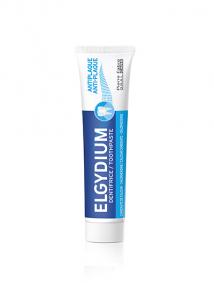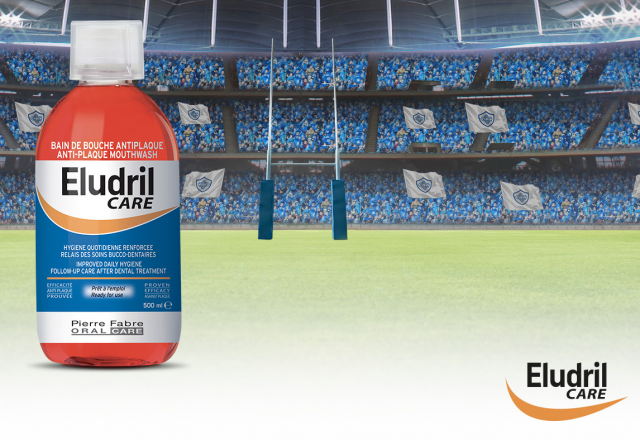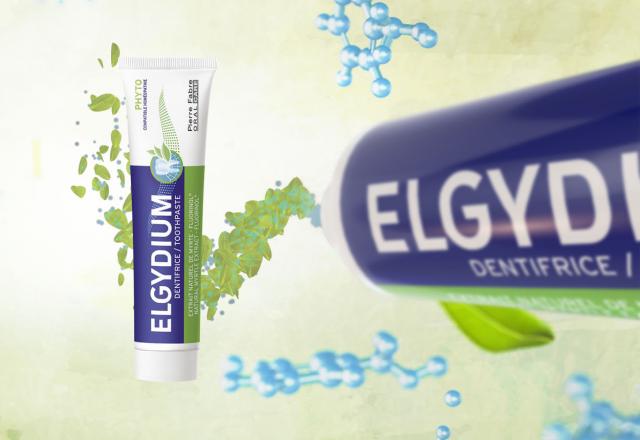
ELGYDIUM PHYTO
COSMETIC
ELGYDIUM PHYTO is a daily-use toothpaste containing natural myrtle extracts and fluorinol (1350 ppm). Through the synergistic action of these two compounds, ELGYDIUM PHYTO helps reduce dental plaque build-up and increases teeth enamel resistance to acidic substances. Menthol and camphor-free, ELGYDIUM PHYTO is compatible with homeopathy. Its eucalyptus flavor provides long-lasting freshness after brushing.
Available in pharmacies and drugstores.
75 ml tube
Product advantages
- Helps prevent dental plaque build-up
- Increases enamel resistance to acids
- Compatible with homeopathy
Effective for
- Dental plaque
- Tooth decay in adults
- Tooth decay in children
Recommended for
- Adults
- Juniors
- Teenagers
How to use
Brush teeth for 2 to 3 minutes, 2 to 3 times a day, after each meal, with a toothbrush meant to remove dental plaque, such as ELGYDIUM ANTIPLAQUE.
Professional opinion
Myrtle is an aromatic, Mediterranean shrub which leaves are traditionnally used for their antibacterial properties. Natural myrtle extracts used in ELGYDIUM PHYTO are processed from Morrocan myrtle leaves, rich in active substances. These are harvested by hand, following ethical principles regarding local producers and ecosystem preservation. Leaves are dried locally and shipped to Pierre Fabre Laboratories for processing. Natural extracts are combined with fluorinol for optimal effectiveness against biofilm, the first stage of dental plaque build-up.
Composition
Natural myrtle extracts
- Reduce the number of bacteria responsible for dental plaque
- Helps biofilm elimination when brushing
Fluorinol (nicomethanol fluorhydrate, 1350 ppm fluoride),
- Intense binding to teeth enamel to increase their mineral content and resistance to acids
Clinical results
During in-vitro studies involving four typical dental plaque bacteria (Streptococcus oralis, Streptococcus mutans, Streptococcus gordonii, Actinomyces naeslundii), the combination Myrtle extracts 2% + Fluorinol 1350 ppm was able to decrease by 99% the number of bacteria within the biofilm (the sticky bacterial film which grows on teeth and represents the first stage of dental plaque build-up).






